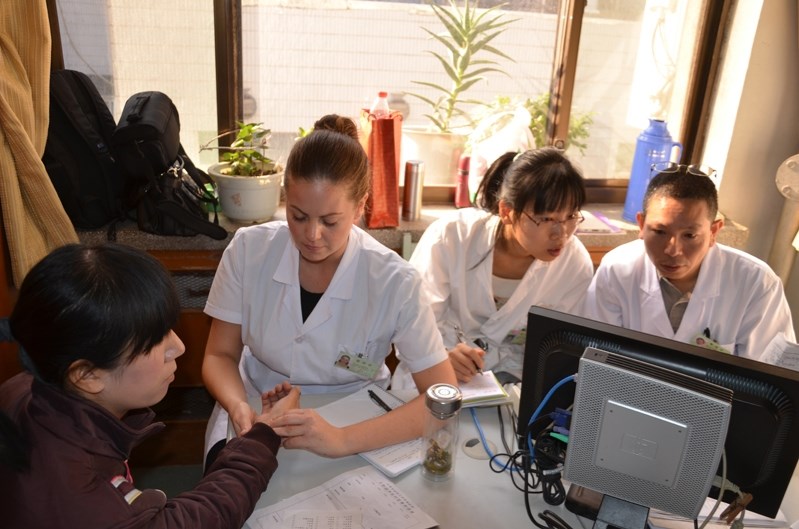Living as a foreigner in China for a year is easier said than done. That is what Innisfailian Devonne Nafziger said referring to her year-long study in Jinan, Shandong, People's Republic of China, (PRC).
Nafziger, who is currently 27 but ventured to PRC when she was 26, is a doctor of Traditional Chinese Medicine, (TCM) and a registered acupuncturist. She now works at Bowden Physiotherapy and Gym.
And when it came to her studies, Nafziger wanted to get as close to the action as possible.
That is why she travelled to China and lived there for nine months to study TCM in not only the country that created it, but also the country that has been practising it for thousands of years.
Nafziger found the opportunity to travel to China through the school she was attending at the time, the Canadian Institute of Traditional Chinese Medicine (CITCM) in Calgary.
She then transferred to the University of Traditional Chinese Medicine in Jinan, Shandong to study TCM in the country where it is practised most.
“It was a whirlwind of a year,” said Nafziger. “I was given tons of amazing experience and was able to work with tons of amazing doctors,” she said.
The bulk of her study was working 12-hour days at the university's hospital, alongside thousands of other university students, assisting doctors and observing their work.
On average, Nafziger would see 150 patients a day. She explained that some patients were easier to assist than others, due to language barriers and her foreign presence.
“A few patients were a bit hesitant on having a foreign practitioner helping them,” she explained. “But I suppose that is to be expected.”
Despite learning the county's language for two years prior to her travel, Nafziger said the language was difficult to learn and more so to understand. Because of this, she had a translator while she worked.
“It was really important to me to see how things got started and how things are different from the way doctors in Canada practise,” Nafziger said.
“I wanted to have that exposure. Western medicine and Chinese medicine work side by side. It is great to see how patients benefit by having natural care in China, because it is so much more common there when compared to here,” she added.
Nafziger's main focus is on herbal medication and acupuncture, and she would help patients with pain--whether acute or chronic--headaches, insomnia and infertility, as she still does today.
“I want to see improvements in my patients,” said Nafziger. “I love seeing the positive changes in people. It is really amazing to see people's lives improve and to make their lives healthier and happier,” she added.
Nafziger lived in an apartment with three other women who were attending the same university during her time in China, and she describes the experience as being similar to camping.
“We tried to stick to the essentials,” she said. “I only had one fork and one spoon to eat with,” she explained, going on to say that she knew her stay would be relatively short and she tried not to get too comfortable.
“I spent most of my time at the university anyways,” she added.
Nafziger started out her seven-year university career in 2006, when she enrolled to major in science at the University of Saskatchewan.
After receiving her science degree, she furthered her studies by taking Traditional Chinese Medicine at CITCM.
She finished her program in Shandong this past June.
“One of the things I really appreciate about travelling is eating different foods and seeing different people,” said Nafziger, who has also spent two years in Asia teaching English.
“I saw a ton of different people in China, which was amazing.”



